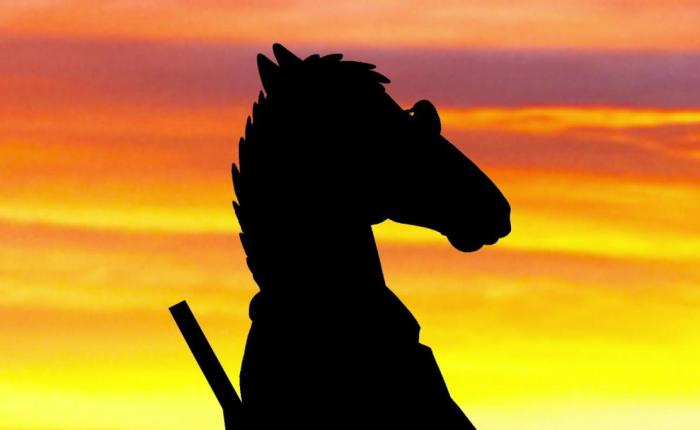What I write of is always the same. It is always the wispy, melancholy text that pours out, an innate reaction to life and the dread that comes with it. When I write of ghosts or the perpetual adolescence I and many like me find ourselves trapped in, it is this I write of.
When I quietly muse on sin or disappointment, it is the absurd, the deeply existential that provokes it. But most importantly, when I grin sarcastically, when I sneer and deride, when my reluctance to engage honestly comes into play, this is what I am always referring to.
The implicit assumption is, of course, that emotional involvement, that unironic participation is something to be ashamed of. The self-awareness I and so many others are cursed with is the deep insecurity of being, transmuted to the deep insincerity of being.
To live in a postmodern world is to remove oneself from ones own experience, commenting on it sardonically and undermining it while earnestly experiencing.
This removal from ourselves is necessary in a world that is both absurd and rife with cliches. We cannot live honestly because life is absurd, and we now know it.
Had we not known, like naive children, we would have lived, loved, lost, mourned and rejoiced. Had we not felt the pointlessness of our struggles deep in our bones and in our blood, we would have lived our lives in much the same way as our fathers before us and their fathers before them did, earnestly living through joy and sorrow, giving drama and tragedy their rightful places in the narratives of our lives.
But we are not the naive children of yesteryear. We are the first children of the 21st century and the last offspring of the 20th, the century to end all centuries through its sheer monstrosity. All centuries but the one that has succeeded it, judging by the claws the latter is starting to grow in.
And nowhere does this transfiguration of insecurity to insincerity show better than in the stories that catch our eye. We cannot experience life without watching it from the sidelines and commenting on it as if it were a variety act, meant to distract us from the sheer pain of existence.
Thus, it is only right that the variety acts of our world would cultivate the same sickly self-awareness, the unbearable separation of being from itself. Our tragedies are not tragic, they feel cartoonish, so it is only fitting that our cartoons be tragic.
We cannot communicate outside a lexicon of dissimulation. Why does Bojack Horseman work as a cartoon? Why would it fail as a live action series? Because we can see ourselves in actors. It is too serious to be taken seriously, so it can only work for us in a slapstick cartoon world.
The same can be said about all topics that were historically considered serious – the rise of the comedian as the sole voice to be taken into account when discussing politics is the symbol of this world we have made, one in which all of us self-styled Oscar Wildes refuse to accept being part of.
This juvenile refusal to participate is but a symptom of our deeper problem, which resides within rather than without. We can only exist now separated from ourselves – we can only read the narrative of our own existence with comic aloofness, allowing us to wink at ourselves and eachother, observing ourselves as if we were subjects of no more interest than a cartoon horse who, as is often the case with imaginary horses, has a serious drinking problem.
I am not one to mourn the death of innocence, nor have I ever been, but nothing good can come from this cynical detachment – we will continue to observe from the sidelines while leaving the true fanatics to be the only ones who act in earnest, reshaping the world in their own image.
We will keep our snark, out cleverness and our detachment as we see a world crumble around us and another crueller one be born from its ashes. And in that new world, this disassociation will be impossible, and we and our kind will become extinct, for better or for worse
